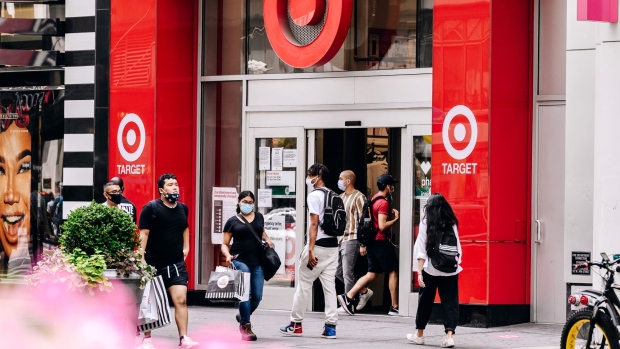European Real Estate Deals Slump to Lowest Level in 13 Years
The deep freeze that’s gripped Europe’s real estate markets since borrowing costs jumped worsened at the start of the year as deals plunged to their lowest levels since 2011.
Latest Videos
The information you requested is not available at this time, please check back again soon.
The deep freeze that’s gripped Europe’s real estate markets since borrowing costs jumped worsened at the start of the year as deals plunged to their lowest levels since 2011.
Investors are looking for the next policy domino to fall in Asia amid an escalating campaign against a resurgent dollar, after Indonesia used a surprise interest rate hike to defend the rupiah.
Vietnamese billionaire Pham Nhat Vuong pledged to invest at least another $1 billion of his personal wealth into VinFast Auto Ltd., providing the capital needed for expansion of the struggling electric vehicle maker.
Macrotech Developers Ltd., a real estate firm that operates under the brand name Lodha, expects pre-sales to grow about 20% in the year to March after reporting its highest ever quarterly revenue.
Distressed Indonesian property developer PT Agung Podomoro Land has hired financial advisory firm Kroll Inc. to advise on an exchange of $132 million of bonds due in June, according to people familiar with the plan.
Aug 7, 2020
, Bloomberg News

(Bloomberg) -- As landlords struggle to find tenants for a glut of empty commercial spaces, businesses that have fared relatively well through the pandemic now have the upper hand in America’s real estate landscape.
With thousands of stores closing permanently, the dislocation is creating a buyer’s market to the benefit of Shake Shack Inc., Levi Strauss & Co., Target Corp. and others with healthy balance sheets that are aiming to broaden their footprints.
“There’s going to be opportunities for us to find locations that frankly weren’t available just six months ago,” said Rob Lynch, chief executive officer of Papa John’s International Inc., which this week reported a 28% jump in same-store sales across North America last quarter. The chain is accelerating expansion plans and plans to add as many as 300 new locations a year, he said in an interview.
The coronavirus pandemic has turbocharged the slow-motion collapse of the American retail industry, forcing companies big and small to shut down as consumers cut spending on clothes, restaurant meals and discretionary purchases. Department store J.C. Penney Co., restaurant chain California Pizza Kitchen Inc., apparel retailer Brooks Brothers Group Inc. and even the owner of Chuck E. Cheese have filed for bankruptcy in recent months.
The moribund environment helped drive asking rents in the retail mecca of New York City during the second quarter to the lowest level since 2011, according to a report by CBRE Group Inc. It’s likely to keep falling through the rest of the year, particularly as companies use bankruptcy to renegotiate or break leases.
Read more: NYC Faces Retail Nightmare With Manhattan Struggling to Recover
At the same time, availability is reaching new highs. The count of ground-floor openings across the city’s premier shopping corridors increased to 235 from 226, passing the previous peak in 2018.
The circumstances are creating a “once-in-a-generation” discount for new tenants, said Steven Soutendijk, an executive managing director with global real estate firm Cushman & Wakefield.
“We have started having a lot more conversations with tenants saying, ‘We’re going to be taking advantage of this,’” Soutendijk said.
Levi is one of those looking to capi
talize. With a stable balance sheet -- and department store closures reducing the number of places its clothes are sold -- the company is accelerating its own brick-and-mortar expansion plan, CEO Chip Bergh said in an interview. At the end of the past quarter, Levi had about $2 billion in liquidity, including $1.4 billion in cash, up about 55% from late last year.
As other retailers pull back, Bergh said, “we see opportunities to land on leases that are in great locations.”
Read more: Busted Retailers Use Bankruptcy to Break Leases by the Thousands
The key, according to Shake Shack CEO Randy Garutti, is to act quickly.
“It’s a great moment to be one of the not-so-many brands that are out there, being opportunistic, being aggressive and getting after it,” he said last week on an earnings conference call. As of June 24, the company had $191 million of cash and marketable securities on hand. “We’ve got a lot of phone calls coming our way about great real estate opportunities.”
©2020 Bloomberg L.P.